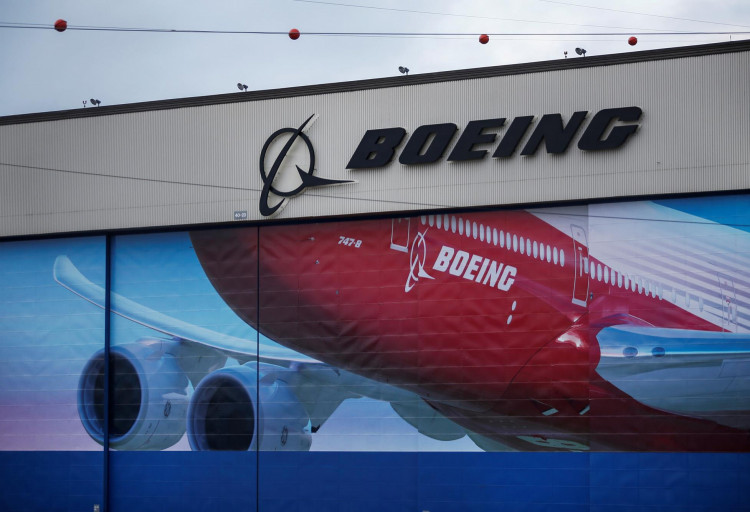Boeing is facing a critical moment as it navigates multiple challenges, including a month-long machinists strike, significant job cuts, and delays in the production of its 777X jet. The aerospace giant announced plans to cut 17,000 jobs, representing 10% of its global workforce, and reported a $5 billion charge for the third quarter, as delays and disruptions continue to impact the company's bottom line.
The job cuts come as Boeing struggles to align its workforce with financial realities exacerbated by the ongoing strike, which has halted production of key models such as the 737 MAX, 767, and 777 jets. Boeing's CEO Kelly Ortberg said in a message to employees that the downsizing is essential for the company's survival, stating, "We reset our workforce levels to align with our financial reality and to a more focused set of priorities."
The announcement of job cuts and the delay in the 777X deliveries triggered a 1.7% drop in Boeing's share price during pre-market trading, underscoring investor concern over the company's future. The 777X, once touted as the successor to Boeing's highly successful 777 mini-jumbo, has faced numerous delays due to certification and testing issues, pushing its first delivery date to 2026-six years behind schedule.
Emirates Airline, one of Boeing's largest customers, expressed frustration over the delays. Emirates President Tim Clark, whose initial order for 150 of the twin-engined jets helped launch the 777X program, said the airline has incurred significant costs due to Boeing's repeated delays. "We will be having a serious conversation with them over the next couple of months," Clark stated in a rare written statement.
The ongoing strike by 33,000 West Coast workers, represented by the International Association of Machinists and Aerospace Workers (IAM), has compounded Boeing's challenges. The union has accused Boeing of failing to negotiate in good faith and described the company's claims to the National Labor Relations Board as baseless. Jon Holden, President of IAM District 751, said Boeing's decision to announce the discontinuation of the 767 freighter program was troubling and would be assessed further. "Boeing's attempt to bargain in the press won't work and it is detrimental to the bargaining process," Holden said.
Boeing's pre-announced third-quarter financial results painted a grim picture. The company expects revenue of $17.8 billion, a loss per share of $9.97, and negative operating cash flow of $1.3 billion, which was better than some analysts had predicted but still a worrying figure. The strike is estimated to cost Boeing $1 billion a month, and analysts believe the company will need to raise between $10 billion and $15 billion to maintain its credit ratings, which are now just one notch above junk status.
Boeing's troubles extend beyond the strike and production delays. The company is also grappling with regulatory scrutiny and legal challenges. In a recent Texas court hearing, Boeing sought approval for a deal with the U.S. Department of Justice in which the company would plead guilty to fraud charges, pay up to $487.2 million in fines, and commit to spending $455 million on safety improvements.
In addition, a national watchdog recently criticized the Federal Aviation Administration (FAA) for its ineffective oversight of Boeing's production practices, raising further questions about the company's safety protocols following a January mid-air panel blowout on a new plane.
To stabilize its finances, Boeing is exploring options to raise billions of dollars through a sale of stock and equity-like securities. One source suggested the company should raise around $10 billion, which would help address its $60 billion in debt and significant cash flow losses. Boeing's total operating cash flow losses exceeded $7 billion in the first half of 2024.
Despite the dire financial situation, some analysts believe the delayed 777X delivery and labor downsizing were not entirely unexpected. "Their credit rating and share price have been at risk for the better part of a decade because of mismanagement, and the stubbornness displayed in the strike may be the straw that breaks the camel's back," said Michael Ashley Schulman, partner at Running Point Capital Advisors.






